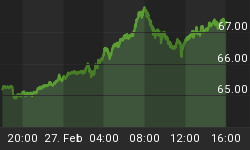Not much has changed in the last few months to alter my view that stocks will continue to be the best place for long-term investors over at least the next several years. Even at record levels, most categories of stock ETFs or funds do not appear overvalued, and some appear to be significantly undervalued. (These valuation levels are reflected in my specific updated Stock ETF/Fund Model Portfolio recommendations and suggested weightings for each presented in my April 2013 Newsletter.)
Obviously, this article's title reflects one of the most challenging questions that many investors now face. But, just as obviously, there is no one answer to fit all investors.
Of course, for some investors this is not an issue at all. They merely start with some pre-determined allocation to stocks; it could be as high as 100% or as low as zero, but is typically about 50 to 60%. They now, as before the current stock surge, essentially just hold on to their initially chosen portfolio investments. If and when any replacements are made, they mostly switch to highly similar types of ETFs/funds (i.e. a stock ETF is replaced with another stock ETF, as opposed to a bond ETF, or cash.) An additional strategy they might use is to periodically rebalance, bringing their stock allocation back to where it began if it has grown.
Such an approach can have its benefits, freeing one from having to make difficult allocation-altering decisions. But these investors must be able to hold their stock allocation steady during a bear market, and on the other hand, do the same during a bull market, not ruing the fact of possibly missing out on much larger gains. Investors thus able to "stay the course," may find little value in my Newsletter's quarterly model portfolio overall allocations to stocks, bonds, and cash which recommend periodically changing your overall allocations to these three basic investment categories.
But for those who do believe, as I do, that there are better and worse times to have significant amounts of money tied up in stocks, and that to some extent, these times can be successfully predicted in advance, it follows that periodically altering one's allocations can significantly help one to achieve their financial goals.
While no one set of recommendations can equally serve the needs of all investors, my overall allocations to stocks for three "types" of hypothetical investors based on risk tolerance can serve as guideposts. While I assume that the majority of investors likely consider themselves as "Moderate Risk" investors as opposed to Conservative or Aggressive, and therefore I gear my main recommendations toward them, factors such as age, current financial situation, and even personality can dictate either a relatively small or large degree of divergence. Of course, only you, yourself, can determine how much risk you are willing to take.
Unfortunately, it is common that investors use the stock market itself as an indicator of how much risk they should take on. Thus, since we have recently been hitting record highs, some investors are now thinking they should increase their allocation to stocks. This implies they may have been previously under-allocated to stocks, and due to mere performance alone, are now more willing to bump up their allocation.
I suggest that the best strategy is to always have at least a moderate allegiance to your chosen investment preference, whether it be stocks or bonds. That way, you do not have to always be looking over your shoulder as to whether you should be significantly more in or, possibly, out of the market.
Initially, as the stock market goes higher after a significant pullback, one might seriously consider increasing their allocation. But, in the current situation, the market has already been going up for more than four years now. Thus, if you already had a moderate position in stocks, rather than considering increasing your allocation to stocks, you might actually consider decreasing it to preserve some profits and in recognition that stocks are now a more risky place to be than they were going back at least several years.
If you find yourself significantly under-allocated to stocks right now, should you therefore increase your allocation? I think it is always preferable to get yourself to what you now consider to be your proper allocation, but only if you are willing to essentially look past likely short-term disappointments and stick with this higher allocation for at least several years. In other words, your 'proper allocation' should not rest on what may happen, say, within the next year or so, but rather, what one expects to be the end result over at least several years.
To recap: One's best plan of action, it seems to me, is not to increase your allocation solely based on stocks' strong current performance. To the contrary, plan on doing most of your additions to your stock portfolio when the market has been struggling. Such a strategy might take many years to implement: Who knows when stocks will again fall significantly? On the other hand, it may make sense take some off the table as the market goes higher and higher.
Alternatively, if you already do have a significant position in stocks, you may choose to let your positions ride. But once you see perhaps a 5% correction, you may wish to protect yourself against a potentially bigger fall by reducing your position at that time. The last 5% correction in the S&P 500 index was in early Nov. 2012, nearly 5 months ago. Although not likely, perhaps it might take an equally long time for the next one.















